Farm Boy 牧場の少年 from Final Fantasy VII ファイナルファンタジーVII with sheet music
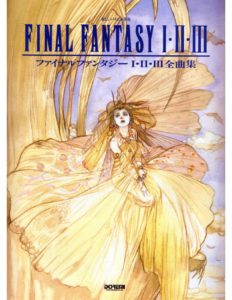
Sheet Music download here.
Music of the Final Fantasy VII series
Final Fantasy VII is a role-playing video game developed by Square (now Square Enix) and published by Sony Computer Entertainment as the seventh installment in the Final Fantasy series. Released in 1997, the game sparked the release of a collection of media centered on the game entitled the Compilation of Final Fantasy VII.
The music of the Final Fantasy VII series includes not only the soundtrack to the original game and its associated albums, but also the soundtracks and music albums released for the other titles in the collection.
The first album produced was Final Fantasy VII Original Soundtrack, a compilation of all the music in the game. It was released as a soundtrack album on four CDs by DigiCube in 1997. A selection of tracks from the album was released in the single-disc Reunion Tracks by DigiCube the same year. Piano Collections Final Fantasy VII, an album featuring piano arrangements of pieces from the soundtrack, was released in 2003 by DigiCube, and Square Enix began reprinting all three albums in 2004. To date, these are the only released albums based on the original game’s soundtrack, and were solely composed by regular series composer Nobuo Uematsu; his role for the majority of subsequent albums has been filled by Masashi Hamauzu and Takeharu Ishimoto.
The Compilation of Final Fantasy VII began eight years after the release of Final Fantasy VII with the release of the animated film sequel Advent Children in 2005. The soundtracks for each of the titles in the collection are included in an album, starting with the album release of the soundtrack to Advent Children that year. The following year, Nippon Crown released a soundtrack album to correspond with the video game Dirge of Cerberus, while Square Enix launched a download-only collection of music from the multiplayer mode of the game, which was only released in Japan. After the launch of the game Crisis Core in 2007, Warner Music Japan produced the title’s soundtrack. The latest album in the collection, Before Crisis: Final Fantasy VII & Last Order: Final Fantasy VII Original Soundtrack, was released by Square Enix the same year as a combined soundtrack album for the game Before Crisis and the animated movie Last Order.
The original music received highly positive reviews from critics, who found many of the tunes to be memorable and noted the emotional intensity of several of the tracks. The reception for the other albums has been mixed, with reactions ranging from enthusiastic praise to disappointment. Several pieces from the soundtrack, particularly “One-Winged Angel” and “Aeris’ Theme”, remain popular and have been performed numerous times in orchestral concert series such as Dear Friends: Music from Final Fantasy and Tour de Japon: Music from Final Fantasy. Music from the Original Soundtrack has been included in arranged albums and compilations by Square as well as outside groups.
Browse in the Library:
| Artist or Composer / Score name | Cover | List of Contents |
|---|---|---|
| Antonio Carlos Jobim – Luiza Guitar Arr with Tablature |
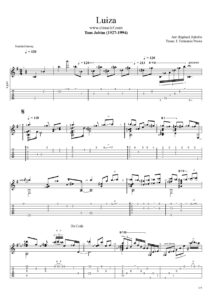 |
|
| Antonio Carlos Jobim – One Note Samba (Guitar Arr.) |
 |
|
| Antonio Carlos Jobim – One Note Samba (guitar TABS sheet music) | Jobim – One Note Samba (guitar TABS sheet music) | |
| Antonio Carlos Jobim – Samba De Uma Nota So | ||
| Antonio Carlos Jobim – Se Todos Fossem Iguais A Voce arr. by Baden Powell (Guitar arr. sheet music with TABs) | Antonio Carlos Jobim – Se Todos Fossem Iguais A Voce arr. by Baden Powell (Guitar arr. sheet music with TABs) | |
| Antonio Carlos Jobim – Tom Jobim For solo Guitar with TABs |
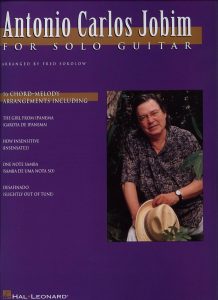 |
Tom Jobim for Solo Guitar |
| Antonio Carlos Jobim – Triste (Guitar Solo Arr. With Tabs Sheet Music) (Musescore File).mscz | ||
| Antonio Carlos Jobim 9 Pieces Guitar TABs |
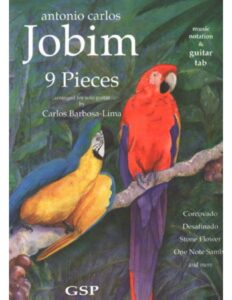 |
Jobim 9 pieces guitar |
| Antonio Carlos Jobim And Chico Buarque Eu Te Amo (Arr. For Guitar By Carles Trepat) |
 |
|
| Antonio Carlos Jobim and the art of Bossa Nova Jazz Play Along Volume 08 with audio MP3 |
 |
Antonio Carlos Jobim Jazz Play-Along Volume 08 – with audio MP3_compressed |
| Antonio Carlos Jobim Anthology (Piano vocal and guitar) |
 |
Antonio Carlos Jobim Anthology (Piano vocal and guitar) |
| Antonio Carlos Jobim for Classical Guitar (Paulo Bellinati Mel Bay 2008) |
 |
Antonio Carlos Jobim for Classical Guitar |
| Antonio Carlos Jobim Jazz Piano solos Vol. 17 |
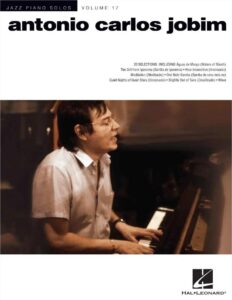 |
Antonio Carlos Jobim Jazz Piano solos Vol. 17 sheet music pdf |
| Antonio Carlos Jobim Jazz Play Along Vol. 08 with audio MP3 |
 |
Antonio Carlos Jobim Jazz Play-Along Volume 08 – with audio MP3_compressed |
| Antonio Carlos Jobim Quebra Pedra (Stone Flower) – Tom Jobim Piano and Guitar chords |
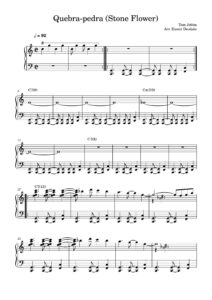 |
|
| Antonio Carlos Jobim Stone Flower (Songbook) Quebra-pedra Tom Jobim Piano Vocal guitar Chords |
 |
Antonio Carlos Jobim Stone Flower (Songbook) Tom Jobim Piano Vocal guitar Chords |
| Antonio Carlos Jobim Tom Jobim – Luiza Guitar Solo |
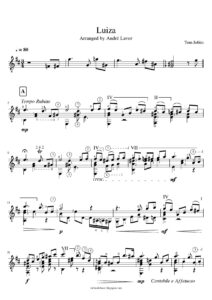 |
|
| Antonio Carlos Jobim Tom Jobim Corcovado arr. for Guitar Violao by Rubinho | Antonio Carlos Jobim Tom Jobim Corcovado arr. for Guitar Violao by Rubinho | |
| Antonio Carlos Jobim Wave (Piano Guitar) |
 |
Antonio Carlos Jobim Wave (Piano Guitar) |
| Anywhere the heart goes (The Thorn birds – Uccelli di rovo) | ||
| Aphex Twin – aisatsana |
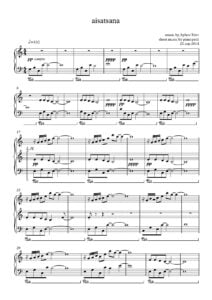 |
|
| Aphex Twin – Avril 14th |
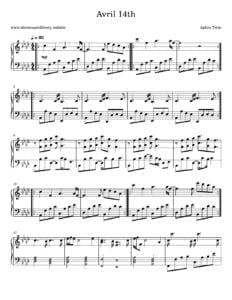 |
|
| Aphex Twin – Avril 14th (Musescore File).mscz | ||
| Aphex Twin – Kesson Daslef |
 |
|
| April In Paris Vernon Duke E.Y. Harburg 1932 Jazz Standard (Vintage sheet music) |
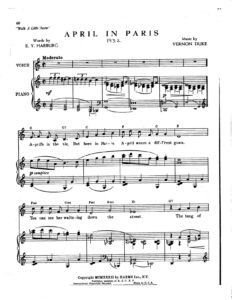 |
|
| Aqua – Doctor Jones | ||
| Aquaman Everything I Need Skylar Grey Piano solo |
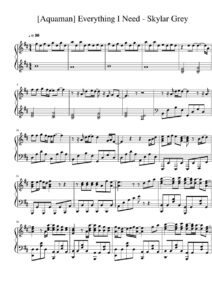 |
|
| Aram Khachaturian – Sabeltanz Aus Gayaneh (Pianoforte 4 hands) | Aram Khachaturian – Sabeltanz Aus Gayaneh (Pianoforte A 4 Mani) | |
| Aranjuez Ma Pensee (ver. for voice and guitar by the composer) |
 |
Aranjuez Ma Pensee |
| Aretha Franklin – Chain Of Fools | ||
| Aretha Franklin – Respect | ||
| Aretha Franklin Songbook |
 |
Aretha Franklin Songbook |
| Aretha Franklin Songbook 1 |
 |
Aretha Franklin Songbook 1 |
| Aretha Franklin Songbook 2 |
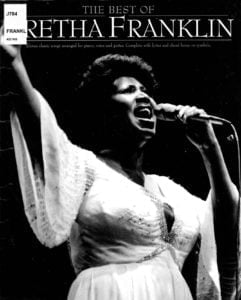 |
Aretha Franklin Songbook 2 |
| Aretha Franklin The Very Best of The 60s |
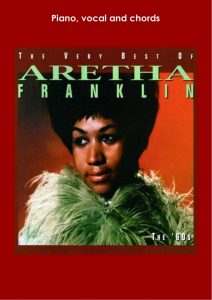 |
Aretha Franklin best of 60s |
| Ari Hoenig Songbook |
 |
Ari Hoenig Songbook |
| Ari Pulkkinen – Angry Birds Theme Song | Ari Pulkkinen – Angry Birds Theme Song | |
| Aria (Cantilena) by Heitor Villa-Lobos.mscz | ||
| Aria di neve (Sergio Endrigo) | ||
| Ariana Grande – 7 Rings Sheet Music |
 |
|
| Ariana Grande – Bang Bang Sheet Music piano Vocal Guitar chords |
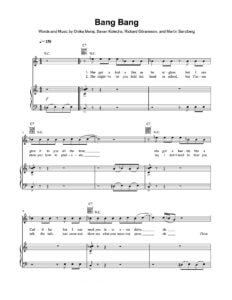 |
|
| Ariana Grande – No Tears Left to Cry Sheet Music |
 |
|
| Ariana Grande Tattooed Heart | Ariana Grande-Tattooed heArt | |
| Ariel Ramírez – Alfonsina Y El Mar (Guitar) arr. by Roland Dyens | Ariel Ramírez – Alfonsina Y El Mar (Guitar) arr. by Roland Dyens | |
| Ariel Ramírez – Alfonsina Y El Mar (Piano) | Ariel Ramírez – Alfonsina Y El Mar (Piano) | |
| Arlen, Harold Stormy weather – piano | Stormy weather – piano | |
| Armageddon (Piano & Guitar Chords) |
 |
Armageddon (Piano & Guitar Chords) |
| Arnold Schoenberg, Gerald Strang, Leonard Stein-Fundamentals of Musical Composition-Faber & Faber (1982) Book |
 |
|
| Around The Campfire Peter, Paul and Mary – Guitar songbook |
 |
Around The Campfire Peter Paul & Mary songbook |
| Arpeggios For The Modern Guitarist Tabs by Will Johnson |
 |
Arpeggios For The Modern Guitarist Tabs by Will Johnson |
| Arranging And Composing for the small ensemble Jazz R&B Jazz-Rock (by David Baker) |
 |
|
| Arrival Of The Birds from The Crimson Wing Mystery of the Flamingos piano solo |
 |
|
| Arrival Of The Birds The Theory of Everything – The Cinematic Orchestra Piano Solo |
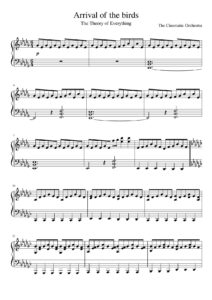 |
|
| Arrival Of The Birds The Theory of Everything Ending Scene Music – The Cinematic Orchestra Piano Solo |
 |
|
| Art Blakey And The Jazz Messanger Bobby Timmons – Moanin’ |
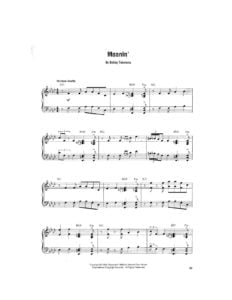 |
|
| Art Of Composing Music (Published In London (1751) |
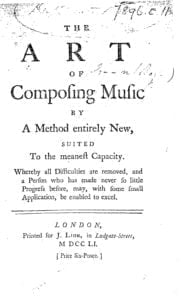 |
|
| Art Of Gospel Guitar – El McMeen with Tablature |
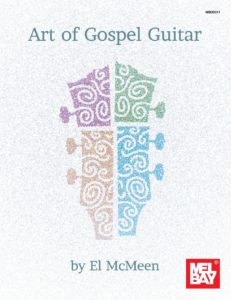 |
Gospel guitar |
| Art of Jazz improvisation book 3 Intermadiate by Bob Taylor |
 |
|
| Art Pepper Collection Solos Artist Transcriptions Saxophone |
 |
art pepper solos sheet music |
| Art Tatum As Time Goes By |
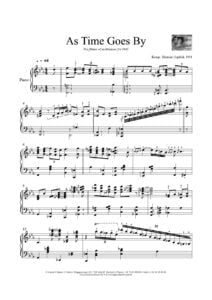 |
|
| Art Tatum – Tiger Rag (Jazz Standard by the Original Dixieland Jass Band) (piano sheet music) | Art Tatum – Tiger Rag (Jazz Standard by the Original Dixieland Jass Band) (piano sheet music) | |
| Art Tatum – All The Things You Are |
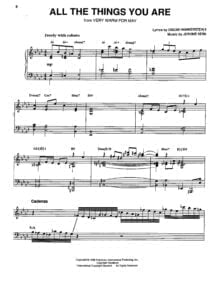 |
|
| Art Tatum – Cherokee |
 |
|
| Art Tatum – Gershwin – The Man I Love (Piano as played by) | Art Tatum Gershwin The-Man-I-Love-Piano | |
| Art Tatum – Jazz Piano solos Vol. 2 |
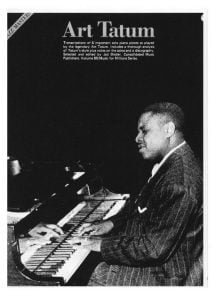 |
Art Tatum Jazz piano solos vol. 2 |
| Art Tatum – New Beginnings A Piano Imrovisation | Art Tatum – New Beginnings A Piano Imrovisation | |
| Art Tatum – Tea For Two (Sheet Music) (Musescore File).mscz | ||
| Art Tatum – Tiger Rag (Sheet Music) (Musescore File).mscz | ||
| Art Tatum – Too Marvelous for Words The Life and Genius of Art Tatum (Book by James Lester) |
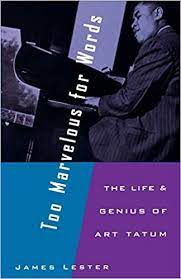 |
|
| Art Tatum 5 Jazz Piano Solos transcribed By Frank Paparelli |
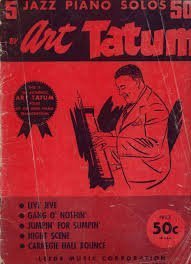 |
Art Tatum 5 Jazz Solos By Frank Paparelli – 1944 Songbook |
| Art Tatum Artist Transcriptions Solo Book |
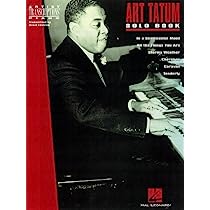 |
Art Tatum |
| Art Tatum Improvisations Piano sheet music |
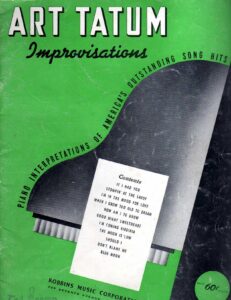 |
Art Tatum Improvisations Piano sheet music |
| Art Tatum Jazz Arr. Begin The Beguine (Musescore File).mscz | ||
| Art Tatum Jazz Arr. Cole Porte Begin The Beguine |
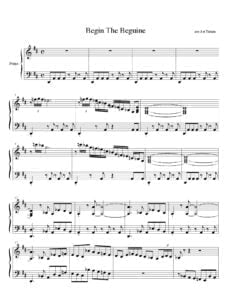 |
|
| Art Tatum New Beginnings (Musescore File).mscz | ||
| Art Tatum Stormy Weather Ted Koehler – Harold Arlen | T.Koehler-H.Arlen – Stormy Weather (arr. A.Tatum) | |
| Art Tatum Tea For Two (Vincent Youmans) |
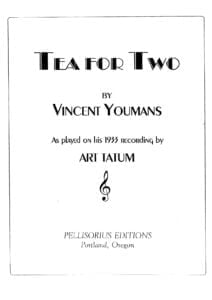 |
|
| Arthur A. Reblitz – Piano servicing, tuning, and rebuilding for the professional, the student, and the hobbyist |
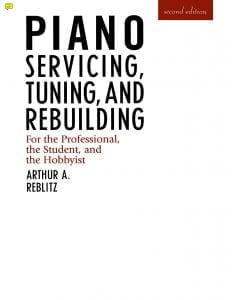 |
|
| Artic Monkeys – Only Ones Who Know | ||
| Artie Shaw – Jazz Technic Book 1 Scales and Exercises |
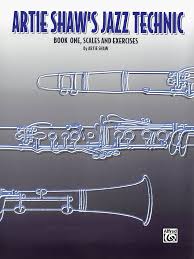 |
Artie Shaw – Jazz Technic Book 1 Scales and Exercises |
| Artie Shaw – Clarinet Method |
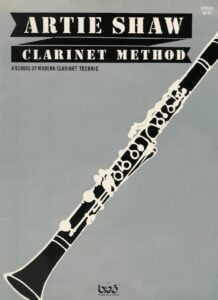 |
|
| Artie Shaw – Concerto for Clarinet for solo Bb Clarinet with Piano accompaniment |
 |
|
| Artie Shaw – Moonglow Clarinet sheet music |
 |
|
| Artie Shaw His Life And Music by John White (Book) Biography |
 |
|
| Artpop Lady Gaga Songbook |
 |
|
| Arturo Sandoval – Sandunga Alto Sax | Arturo Sandoval – Sandunga Alto Sax | |
| Arturo Sandoval – Trumpet Method |
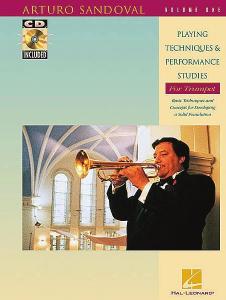 |
|
| Arvo Part Fratres Piano Sheet music |
 |
|
| Arvo Pärt Partita For Piano, Op 2 (1960) |
 |
|
| Arvo Pärt Spiegel Im Spiegel (Violoncello And Piano) |
 |
|
| Arvo Part Summa for Strings | Arvo Part Summa for Strings | |
| Arvo Part – Fur Alina Variations | Arvo Part – Fur Alina Variations | |
| Arvo Pärt – Zwei Sonatinen Für Klavier Op. 1 |
 |
|
| Arvo Pärt Out Of Silence (Peter C. Bouteneff) Book |
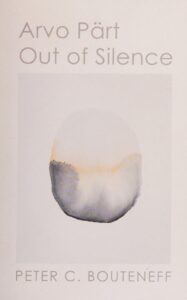 |
|
| Arvo Pärt Sounding The Sacred Book by Peter C. Bouteneff Jeffers Engelhardt Robert Saler |
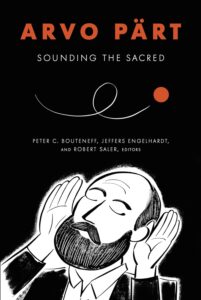 |
|
| Arvo Pärt Spiegel Im Spiegel (arranged for Piano Solo) | Arvo Pärt – Spiegel Im Spiegel (arranged for Piano Solo) | |
| Arvo Pärt Spiegel Im Spiegel Violin Piano |
 |
|
| Ary Barroso – Amor Fatal Fox triste (piano) |
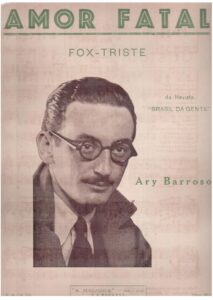 |
|
| Ary Barroso – Aquarela Do Brasil (Samba) Guitar Solo |
 |
|
| Ary Barroso – Aquarela Do Brasil (Samba) Guitar Solo TABs |
 |
|
| Ary Barroso – Aquarela Do Brasil (Samba) Guitar Solo.mscz | ||
| Ary Barroso – Aquarela do Brasil Piano Vocal | Ary Barroso-Aquarela do Brasil | |
| Ary Barroso – Tenho Saudade! Samba Cançao (piano) |
 |
|
| Ary Barroso Aquarela Do Brasil Arr Carlos Barbosa Lima for guitar | Ary Barroso Aquarela Do Brasil Arr Carlos Barbosa Lima for guitar | |
| Ary Barroso Guitar 1 songbook (arr. by Almir Chediak) |
 |
Ary Barroso Guitar 2 songbook (arr. by Almir Chediak) |
| Ary Barroso Guitar 2 songbook (arr. by Almir Chediak) |
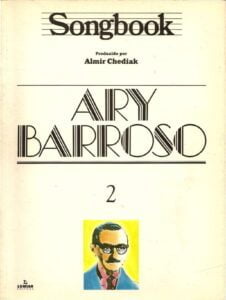 |
Ary Barroso Guitar 2 songbook (arr. by Almir Chediak) |
| As 101 Melhores Canções Do Século XX – Vol 2 – Almir Chediak (Guitar) |
 |
As 101 Melhores Canções Do Século XX – Vol 2 |
| As 101 melhores cançoes do século XX Vol. 1 (Almir Chediak) |
 |
As 101 Melhores Canções Do Século XX – Vol 2 |
| As Time Goes By (Musescore File).mscz | ||
| Ashanti – The Way That I Love | ||
| Asking you (Green Card OST) Hans Zimmer | ||
| Assassin’s Creed Rogue – Main Theme |
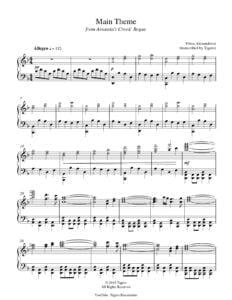 |
|
| ASSASSINS – The Musical Sondheim-Weidman (Piano & Vocal) |
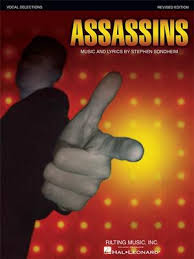 |
ASSASSINS – The Musical Sondheim-Weidman (Piano & Vocal) |
| Assassins Creed 2 – Ezios Family |
 |
|
| Assassins Creed III Main Theme |
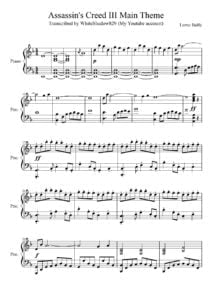 |
|
| Astor Piazolla – Adios Nonino | ||
| Astor Piazolla Libertango Violin And Piano | Astor Piazolla Libertango Violin And Piano | |
| Astor Piazzola – Libertango (piano arr.) |
 |
|
| Astor Piazzola – Libertango (Piano Solo) |
 |
|
| Astor Piazzola – Play Piazzolla 13 Tangos By Astor Piazzolla EASY GUITAR ARR. |
 |
Astor Piazzola – Play Piazzolla 13 Tangos By Astor Piazzolla EASY GUITAR ARR. |
Creation and development

Final Fantasy VII was scored by the series’ main composer Nobuo Uematsu
Nobuo Uematsu composed the music of Final Fantasy VII in less than one year, matching the game’s development time, although he had taken two years to create the soundtrack for the previous title, Final Fantasy VI. Final Fantasy VII was the first game in the series to be developed for the PlayStation, and while the media capabilities of the console allowed for pre-recorded Linear PCM (often as Red Book audio tracks on the CD), it was decided to generate the music in real time on the console instead, using samples and note data. This decision has been credited as giving the soundtrack “a very distinctive mood and feel”, forming a strong association for listeners between the game and its soundtrack.
Uematsu had initially planned to use vocal performances for the game to take advantage of the console’s capabilities, but found that the advanced audio quality required in turn made the game have much longer loading times in each area. Uematsu decided that the quality was not worth the effects on gameplay, though after the release and seeing Suikoden II (1998, PlayStation), which had used higher-quality music instead, he reversed his stance for Final Fantasy VIII. There was a plan to use a “famous vocalist” for the ending theme to the game as a “theme song” for the game, but time constraints and thematic concerns, caused the idea to be dropped. Uematsu has stated, however, that the move into the “PlayStation era”, which allowed video game composers to use sounds recorded in the studio rather than from synthesizers, had “definitely been the biggest change” to video game music.
Uematsu’s approach to composing the game’s music was to treat it like a film soundtrack and compose songs that reflected the mood of the scenes rather than trying to make strong melodies to “define the game”, as he felt that approach would come across too strong when placed alongside the game’s new 3D visuals. As an example, he composed the track intended for the scene in the game where Aerith Gainsborough is killed to be “sad but beautiful”, rather than more overtly emotional, creating what he feels is a more understated feeling. Uematsu has additionally said that the soundtrack has a feel of “realism”, which also prevented him from using “exorbitant, crazy music”.
The first piece that Uematsu composed for the game was the opening theme; game director Yoshinori Kitase showed him the opening cinematic to the game and asked him to begin the project there. The track was well received in the company, which gave Uematsu “a sense that it was going to be a really good project”. He later stated in the liner notes for the soundtrack album that the music for Final Fantasy VII was his “greatest harvest” to date.
Final Fantasy VII was the first game in the series to include a track with digitized vocals, “One-Winged Angel”. The track has been called Uematsu’s “most recognizable contribution” to the music of the Final Fantasy series, though the composer did not expect it to gain such popularity. The piece, described as “a fanfare to impending doom”, is said to not “follow any normal genre rules” and has been termed “possibly the most innovative idea in the series’ musical history”.
Uematsu approached the piece, which accompanies the final battle of the game, in a different manner than previous “boss tracks”: as he felt that using his normal approach would cause unfavorable comparisons to his well-received Final Fantasy VI boss tracks, he instead tried to take a different approach. Inspired by The Rite of Spring by Igor Stravinsky to make a more “classical” track, and by rock and roll music from the late 1960s and early 1970s to make an orchestral track with a “destructive impact”, he spent two weeks composing short unconnected musical phrases, and then arranged them together into a song, an approach he has never used before or since.
The lyrics of “One-Winged Angel”, a Latin choral track that plays at the climax of the game, were taken from the medieval poetry that forms the basis of Carl Orff‘s Carmina Burana, specifically “Estuans Interius”, “O Fortuna“, “Veni, Veni, Venias” and “Ave Formosissima”. Uematsu has stated that the intro of “One-Winged Angel” is based on Jimi Hendrix‘s “Purple Haze“, that the piece revolves around the image of Sephiroth, and that despite the chorus and orchestra, he still thinks of it as a “rock piece”. He said in a 2005 interview that “One-Winged Angel” is his favorite tune from the soundtrack, and in 2004 that it was his favorite battle theme from any Final Fantasy game.
Final Fantasy VII Albums
Original Soundtrack
Final Fantasy VII Original Soundtrack is a soundtrack album containing musical tracks from the game, composed by Nobuo Uematsu and produced by Uematsu and Minoru Akao. It was originally released on February 10, 1997 through DigiCube and later reissued directly by Square Enix on May 10, 2004. The soundtrack spans 85 tracks over four discs and has a combined duration of 4:39:53. A limited edition was produced along with the original album, containing illustrated liner notes with several pictures of Uematsu’s workspace and personal effects, various cutscenes and in-game screenshots from the game, and a discography.
The soundtrack covers a wide variety of musical genres, including rock, techno, orchestral, and choral, although the soundtrack as a whole is primarily orchestral. While many of the tracks were intended as background music, reviewers noted the emotional intensity of several tracks, especially “Aerith’s Theme”, which plays during a moment described as “the most shocking moment in video games,” and has been described as the most memorable track from the album. The theme has become popular among fans, and has inspired various arrangements. Other notable tracks include “Main Theme of Final Fantasy VII”. Themes from this track play during several other tunes from the soundtrack, such as “Words Drowned by Fireworks”, to tie the soundtrack together.
The regular edition of the album reached No. 3 on the Japan Oricon charts, while the limited edition reached No. 19. Overall, the album sold 148,000 copies as of January 2010, with the limited edition selling a further 21,000. The album was well received by critics. Allmusic awarded Uematsu’s original soundtrack a five-star rating.
Ben Schweitzer of RPGFan claimed that “for the most part, it’s a diamond”, with his primary complaint being the quality of the MIDI sound. He found the tracks to be “beautiful” and said that “One-Winged Angel” was “possibly the most innovative idea in the series’ musical history”.
Patrick Gann of RPGFan concurred and found all of the soundtrack’s tunes to be “memorable” and the Original Soundtrack to be “very worth the purchase”. Philip of Square Enix Music Online, however, disliked the sound quality of the soundtrack and saw several tracks as “trivial”, though he did note that Uematsu “has a flair for strong, memorable” pieces. In 2006, IGN ranked the album as the best Final Fantasy soundtrack to date and cited the “gripping” character themes and “One-Winged Angel” in particular as contributing factors. They also named “One-Winged Angel” as the best piece of music from the entire Final Fantasy series.
The original CDs for both releases were only published in Japan and include only Japanese track names. The official English track names were later added to digital releases of the soundtrack.
